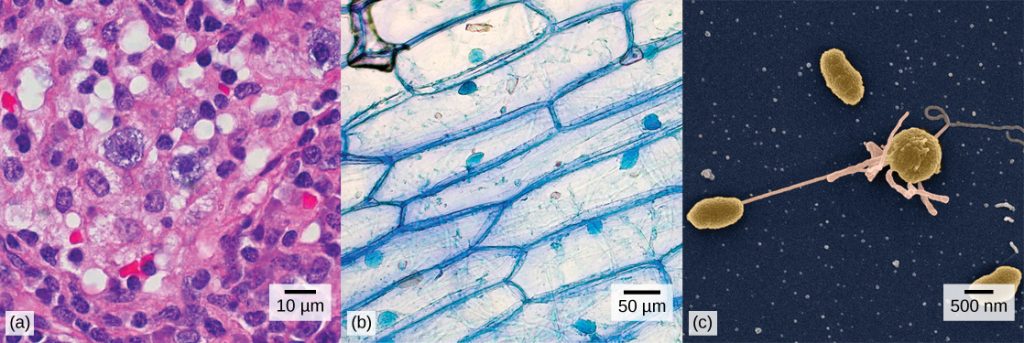5: Cell Structure and Function
- Page ID
- 64537
Learning Objectives
Course Objectives for this section:
- Explain how basic units of cellular structure define the function of all living things.
- Explain how various cell structures participate in the function of a cell and/or organism.
- Discuss the role of evolution in shaping cellular structure and function.
Close your eyes and picture a brick wall. What is the basic building block of that wall? It is a single brick, of course. Like a brick wall, your body is composed of basic building blocks, and the building blocks of your body are cells (Figure \(\PageIndex{1}\)a-c).
Your body has many kinds of cells, each specialized for a specific purpose. Just as a home is made from a variety of building materials, the human body is constructed from many cell types. For example, epithelial cells protect the surface of the body and cover the organs and body cavities within. Bone cells help to support and protect the body. Cells of the immune system fight invading bacteria. Additionally, red blood cells carry oxygen throughout the body. Each of these cell types plays a vital role during the growth, development, and day-to-day maintenance of the body. In spite of their enormous variety, however, all cells share certain fundamental characteristics.

References
Unless otherwise noted, images on this page are licensed under CC-BY 4.0 by OpenStax.
Text adapted from: OpenStax, Concepts of Biology. OpenStax CNX. May 18, 2016 http://cnx.org/contents/b3c1e1d2-839...9a8aafbdd@9.10
Thumbnail: Structure of a prokaryotic cell. (CC-BY 4.0; OpenStax).

